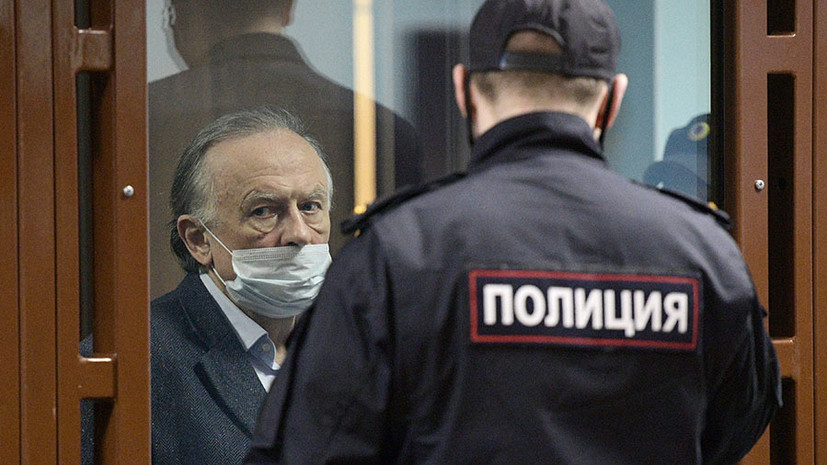Historian Oleg Sokolov was sentenced to 12.5 years in a maximum security colony in the case of the murder of graduate student Anastasia Yeshchenko.
The Oktyabrsky District Court in St. Petersburg found 64-year-old Sokolov guilty of the murder of a girl, as well as of illegal possession of firearms.
“By the aggregate of the crimes committed - by the age of 12 and six months with the serving of a sentence in a strict regime colony,” the judge of the Oktyabrsky District Court of St. Petersburg, Yulia Maksimenko, quotes TASS.
The state prosecution requested 15 years in prison for him.
The lawyer, in turn, asked to take into account the historian's confession of guilt, his mental and emotional state, chronic diseases, as well as the presence of two young children and positive characteristics.
The announcement of the verdict took about three hours.
During this time, the historian did not say a word.
When the verdict was announced, it was noted that Sokolov had a spontaneous intent to kill Yeshchenko.
Sokolov's defense had previously asked for a sentence of eight years in prison.
According to the lawyer who represented the interests of the historian, Anastasia Yeshchenko "gave a reason", and the presence of a traumatic situation and other mitigating circumstances suggests that the punishment for Sokolov "cannot exceed eight years in prison."
As a result of today's meeting, Sokolov's defense declared disagreement with the verdict.
However, the lawyers noted that the issue of appealing the court decision will be resolved after receiving a copy of the verdict.
The historian himself, speaking with the last word on December 14, said that "not only must, but also wants to be punished."
He also expressed "deep and complete regret for what he had done."
The family of the murdered SPbU graduate student Anastasia Yeshchenko will not appeal the verdict, said the representative of the injured party, Alexander Baksheev.
"The family believes that their daughter will not return anything to them, but they will not appeal the verdict," the TASS lawyer is quoted as saying.
Recall that the murder took place on the night of November 8, 2019.
According to the investigation, Sokolov shot a graduate student and his beloved Anastasia Yeshchenko at his home in St. Petersburg.
The case file says that Sokolov shot the girl in the head from close range.
It is noted that the victim continued to show signs of life, after which the killer squeezed her neck, and later made three more shots to the head.
Sokolov kept Yeshchenko's corpse until November 9.
He dismembered the body in the apartment using a saw, a hacksaw, kitchen knives and an ax.
Subsequently, he went to the embankment of the Moika River to get rid of Yeschenko's remains.
When trying to throw body parts into the river, Sokolov slipped into the water.
Rescuers removed the historian from the water along with his backpack, in which they found severed female hands and a traumatic pistol.
During the subsequent inspection of Sokolov's apartment, a black plastic bag wrapped with electrical tape was found in the room.
It contained the head of the murdered woman.
In addition, a TOZ-17-01 sawn-off shotgun with a 5.6 mm sleeve, boxes of cartridges, a saw and an ax were found.
The belongings of the murdered girl were also found there, among which was a student card, a graduate student's certificate and jewelry with traces of blood thrown into the trash can.
Several days later, investigative experiments took place, in which Sokolov participated.
The published videos of this procedure show that the historian put on a bulletproof vest and a helmet - these measures were taken to avoid lynching.
The man was accompanied by a lawyer and several law enforcement officers.
To gallery page
During interrogations, Sokolov confessed to the crime, explaining his actions by a quarrel with Yeshchenko.
According to one of the versions voiced by the historian, he wanted to calm his beloved with a shot in the air, but hit her in the head.
Subsequently, the historian pleaded guilty and repented of his deed.
In addition, the historian argued that the conflict with her beloved occurred because of her rejection of his children.
The final charge was brought against Sokolov in March 2020.
According to the charge, the historian committed a crime in the course of a domestic conflict based on mutual jealousy.
Moreover, his actions are not connected with the necessary defense, or with exceeding its limits.

